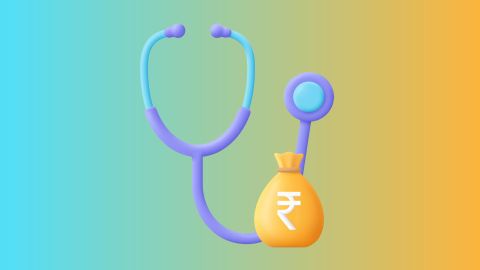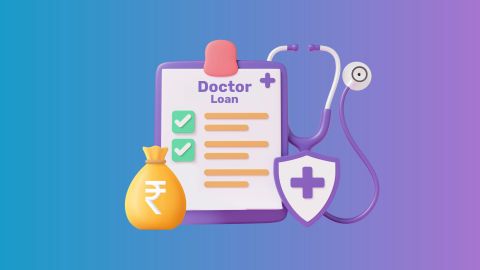Hospitals play a crucial role in maintaining the health and well-being of our communities. They are not just places where we go for treatment when we are sick, but centres that provide a wide range of services essential for public health. Understanding the various functions of a hospital helps us appreciate the complexity and importance of these institutions. In this article, we will explore the many functions of hospitals, including their roles in patient care, medical education, and research. We will also touch on how these functions are supported and enhanced by modern financing solutions, like the Bajaj Finserv Doctor Loan, which can be crucial for medical professionals managing their practices.
10 Functions of a Hospital
Hospitals serve numerous functions that go beyond basic medical treatment. Here are ten key roles that they play:
- Patient care: Hospitals provide essential medical services including emergency care, surgery, and routine check-ups.
- Medical education: They serve as training grounds for medical students and residents, ensuring the next generation of doctors is well prepared.
- Research: Hospitals engage in research to advance medical science and improve patient outcomes.
- Prevention and health promotion: They offer services to prevent diseases and promote healthy lifestyles.
- Community outreach: Hospitals work within communities to address health issues and provide education.
- Home and community nursing: Hospitals extend their services to home care and community settings, offering support for patients outside the hospital.
- Sports medicine: They provide care for athletes and individuals with sports-related injuries.
- Major incidents: Hospitals play a critical role in handling major incidents, including emergencies and disasters.
- Communicating with patients: Effective communication is crucial for patient care, involving consultations and updates about health conditions.
- Financial and administrative management: Managing finances and administrative tasks ensures smooth hospital operations.
Patient Care
One of the primary functions of a hospital is to provide comprehensive patient care. This includes emergency treatment, surgical procedures, and ongoing care for chronic conditions. Hospitals are equipped with advanced medical technology and staffed by trained professionals to ensure that patients receive the best possible care.
Medical Education
Hospitals are vital for medical education and training. They offer practical experience to medical students and residents, bridging the gap between theoretical knowledge and real-world practice. This hands-on experience is essential for developing skilled healthcare professionals.
Research
Research is a fundamental function of hospitals, contributing to advancements in medical science. Hospitals conduct clinical trials, studies, and other research initiatives to discover new treatments and improve existing ones. This research is crucial for enhancing patient care and medical practices.
Prevention and Health Promotion
Hospitals also focus on prevention and health promotion. They run vaccination programmes, health screenings, and educational workshops to help prevent diseases and promote healthier lifestyles. This proactive approach helps reduce the incidence of illnesses and improves overall community health.
Community Outreach
Hospitals engage in community outreach to address local health issues. They collaborate with community organisations to provide health education and services, ensuring that healthcare reaches underserved populations. This outreach is crucial for improving public health and ensuring equitable access to medical care.
Home and Community Nursing
Extending their services beyond hospital walls, many hospitals offer home and community nursing. This includes providing in-home care for patients recovering from illness or surgery and offering support for chronic conditions. This service helps patients receive care in the comfort of their own homes.
Sports Medicine
Sports medicine is another important function of hospitals. They provide specialised care for athletes and individuals with sports-related injuries. This includes treatment, rehabilitation, and preventive care to help patients return to their activities safely and effectively.
Major Incidents
Hospitals play a critical role in managing major incidents, such as natural disasters or large-scale emergencies. They are equipped to handle a surge in patients and provide essential care during crises. Preparedness and response planning are key to their role in major incidents.
Communicating with Patients
Effective communication with patients is essential for quality care. Hospitals ensure that patients are informed about their health conditions, treatment options, and progress. Clear communication helps patients make informed decisions and enhances their overall experience.
Financial and Administrative Management
Effective financial and administrative functions help hospitals operate smoothly and maintain long-term efficiency.
Budget planning: Hospitals create structured budgets to allocate funds, manage expenses, and maintain financial stability.
Cost control: Teams monitor operational spending to optimise hospital operations management and reduce unnecessary costs.
Revenue management: Includes billing, claims processing, and insurance coordination to strengthen financial performance.
Staff management: Covers recruitment, scheduling, and performance evaluation as part of core hospital administration activities.
Infrastructure oversight: Ensures hospital infrastructure is maintained, upgraded, and compliant with safety guidelines.
Policy implementation: Administrators develop policies to streamline healthcare management functions and improve patient services.
Technology integration: Adoption of HIS systems and digital tools improves administrative accuracy and overall efficiency.
Evolution of Hospital Functions in India
Hospital functions have transformed significantly in India as healthcare systems have modernised.
Traditional healing role: Historically, hospitals offered basic care, herbal treatments, and community-based healing support.
Shift to structured care: Over time, hospitals adopted scientific methods, medical specialisations, and organised service delivery.
Rise of private healthcare: Modern hospital functions in India expanded with private and corporate hospitals offering advanced care.
Technology adoption: Digital records, telemedicine, and diagnostic technologies reflect key healthcare trends in India.
Patient-centred care: Hospitals now focus on safety, experience, preventive care, and personalised treatment plans.
Public scheme integration: Stronger participation in government health programmes has improved accessibility and affordability.
Conclusion
Hospitals are complex institutions with multiple functions crucial for community health. From patient care to research and community outreach, they play a vital role in maintaining and improving public health. For medical professionals, managing these functions can be supported by financial solutions like the Bajaj Finserv Doctor Loan, which offers flexible financing options to help with practice management and personal expenses. Along with this, loans for professionals and healthcare finance further enable medical practitioners and institutions to streamline operations, upgrade equipment, and deliver better-quality services.
Frequently asked questions
Bajaj Finserv app for all your financial needs and goals
Trusted by 50 million+ customers in India, Bajaj Finserv App is a one-stop solution for all your financial needs and goals.
You can use the Bajaj Finserv App to:
- Apply for loans online, such as Instant Personal Loan, Home Loan, Business Loan, Gold Loan, and more.
- Invest in fixed deposits and mutual funds on the app.
- Choose from multiple insurance for your health, motor and even pocket insurance, from various insurance providers.
- Pay and manage your bills and recharges using the BBPS platform. Use Bajaj Pay and Bajaj Wallet for quick and simple money transfers and transactions.
- Apply for Insta EMI Card and get a pre-qualified limit on the app. Explore over 1 million products on the app that can be purchased from a partner store on Easy EMIs.
- Shop from over 100+ brand partners that offer a diverse range of products and services.
- Use specialised tools like EMI calculators, SIP Calculators
- Check your credit score, download loan statements and even get quick customer support—all on the app.
Download the Bajaj Finserv App today and experience the convenience of managing your finances on one app.





